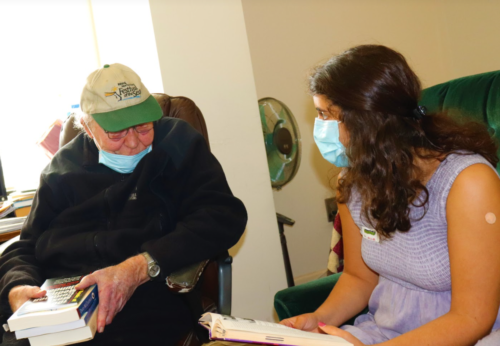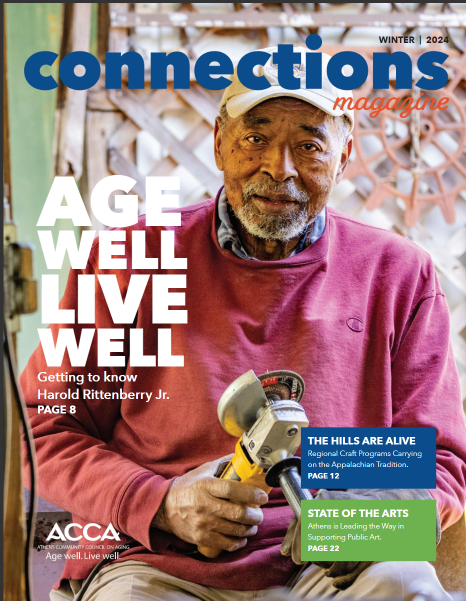The Living Histories of Athens: Roland Bramlett
 When Mr. Bramlett explained that he enjoyed writing, it was assumed he was talking about journaling or small pieces of work, not how radioactive compounds work at the molecular level as a form of therapy in the healthcare field. However, one of his books in his bookshelf read, “Basics of Nuclear Medicine by Sheldon Baum and Roland Bramlett.” How did he get to this level of expertise to write books of this stature?
When Mr. Bramlett explained that he enjoyed writing, it was assumed he was talking about journaling or small pieces of work, not how radioactive compounds work at the molecular level as a form of therapy in the healthcare field. However, one of his books in his bookshelf read, “Basics of Nuclear Medicine by Sheldon Baum and Roland Bramlett.” How did he get to this level of expertise to write books of this stature?
His first job was in his home state of Oregon as a radio mechanic.
He explained, “If you wanted your radio fixed you sent for me.”
After that, he left for Eastern Oregon College for two years before being drafted during World War II. It was while he was stationed at Camp Grant in Illinois, where he trained as a medic and an x-ray technician paving the way for his future career. He carried his work to Mississippi where he applied to be a part of the Specialized Training Unit, a military training program specifically for junior officers and soldiers with technical skills such as medicine. Towards the end of his service, his work led him overseas to the Maunthoussen Concentration camp. He conducted chest x-rays, exams, and administered large milk barrels throughout the camp to rehabilitate the survivors.
When asked how the experience impacted him, he simply said, “To this day, I can’t stand to look at an overly thin person.”
After the war, he went to school on the GI bill where he attended Oregon State, applied for fellowship at NYU sponsored by the Sloan Kettering Institute and eventually got a Masters and Doctorate degree from St. Johns in Biophysics. He spent over ten years in NY describing his lifestyle as the opposite of the New York way.
“While everyone was hopping on the subway to get to work in the city, I was going the opposite way, working in the suburbs.”
His life wasn’t all smooth sailing, though. He actually even recounted the rocky waves and sea sickness he and his crew felt on their return from the war. From moments like those, to the young deaths of his sister and son, Mr. Bramlett had faced many hardships through the years.
When it came to the issue of COVID- 19, he talked about how the virus cut into his social activities at Talmage Terrace. He missed the Friday get-togethers at the end of his hall. He knew from the start, this would only be solved when a vaccine became available.
“When I was growing up, everyone was afraid of polio. Once you got the vaccine everyone’s fears went away, and it would be the same for COVID.”
 Now that the vaccine for COVID-19 is more available and over 90% of the people at Talmage Terrace are vaccinated, he looks forward to getting back into their social activities, seeing his other son who lives in Georgia as a radiologist, and seeing his grandson in person just in time for his 100th birthday in June of 2021.
Now that the vaccine for COVID-19 is more available and over 90% of the people at Talmage Terrace are vaccinated, he looks forward to getting back into their social activities, seeing his other son who lives in Georgia as a radiologist, and seeing his grandson in person just in time for his 100th birthday in June of 2021.
Until then, he will continue to treasure this card given to him by his grandson – he had it prominently displayed in his apartment.
– Interviewed by Richelle Matarazzo








